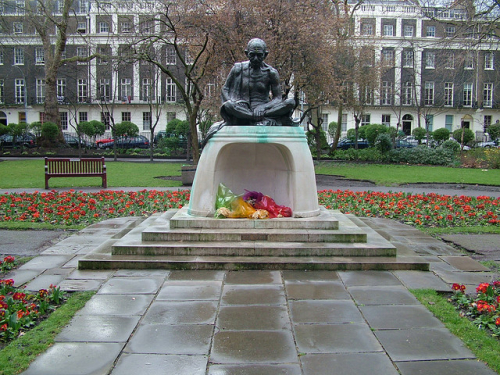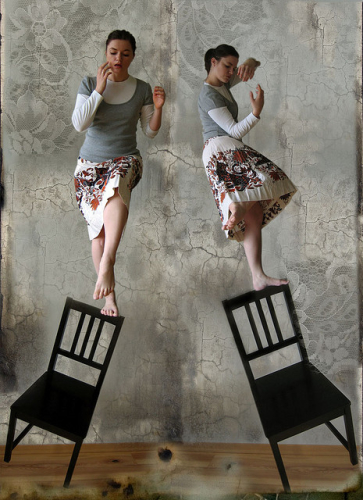By Tom Welch
How can we effectively confront what we believe to be unhealthy thoughts and acts by others?
If we confront them directly, or “head on,” we become the opposite pole of their magnet, stuck tight to them by our fierce opposition. We become their mirror image, in essence becoming ever more similar to them in the way we act, though different in slogans and mantra.
I have been watching some PBS footage on the 40th anniversary of the fall of Saigon. Toward the end of the Vietnam war, in Kent, Ohio, four students were killed by Ohio national guardsmen firing live ammunition blindly into a crowd of young people. Two were protesting the war. Another two were just crossing the University Commons to go to class.
Television interviews conducted in the immediate aftermath exposed naked hatred in the community of Kent.
One middle aged woman exclaimed in fury that they should have killed more of them. But this hatred was not just in Kent or in Ohio. Protesters in NYC were beaten by blue collar construction workers as police looked on.
One of the students present at the killing at Kent State went home, because after the killings the university was immediately closed for the rest of the term. She stated in PBS programming, that when she brought up these horrible killings, her father said that they all should have been killed. She told him in that case he would be without her because she had been there. He responded by silently leaving the room. The war had divided the nation beyond politics, beyond tribes, into warring camps. It was ‘My country, right or wrong’ versus ‘Hey, hey, LBJ, how many kids have you killed today?’
I lived through those times.
I was not a brave anti-war demonstrator, although many of my friends were. I did not support the war, although my family did vehemently. I was confused and conflicted, as many of us were at the time. It just didn’t seem possible that our government could be fighting what seemed a crazy war, under false pretenses. I sent letters to US senators, asking reasonable and, I thought, searching questions. I got ‘position papers’ in return. These are, I suppose, more valuable for their historical signatures than for any evidence of thoughtfulness.
In retrospect it is disconcerting that the deaths of 50,000 young Americans in Vietnam had less to do with ending the war than the deaths of four students at home here in America. People could visualize these four as their sons, whereas the fog of jingoism and misguided patriotism prevented them from seeing those other fifty thousand as their children. Only the families of those fifty thousand felt the pain, along with the hundreds of thousands of Vietnamese killed and their families.
After Kent State, the war was over, ‘all over but the shouting’ as people used to say.
The war could no longer be seen by any reasonable person as anything but a disaster for the country, and people became aware that they were being lied to. Kent State was the visceral evidence that the war was pulling the country apart, literally, and the war was no longer seen as making any sense at all. The whole illusion of America being threatened by communists in a tiny country half a world away evaporated like morning mist on a hot day.
There followed a great deal of posturing by politicians and a great deal of subliminal guilt in the population at large.
People became fully aware that we were to blame for our own moral collapse and for a humanitarian catastrophe. Some complained that we just hadn’t fought hard enough, long enough, with enough people, and so on. Most of us knew that to be untrue, but we struggled simply to put guilt out of our minds and in short order consented as a nation to just forget all about it. We simply were not able to take in the lessons that were there to be learned.
We see this same kind of reaction today in the Turkish government’s refusal to recognize their genocide against Armenians in the early twentieth century, and in the Japanese government’s current refusal to apologize (expressing ‘regret’ only) for the use of foreign women as sex slaves for the ‘relief’ of their soldiers during WWII.
So, now back to the issue of confrontation.
We see that when students occupied and even burned parts of their universities during the height of the war, and when residents of economically depressed areas over the years have burned and looted their own neighborhoods, the result is not social progress at all; instead, the result is political and social polarization that reduces the chance for any dialogue, reconciliation and solutions. And it also changes the subject from the real issues at hand.
I think Gandhi had it right.
If we want to establish and maintain a laser focus on an inequity, we do so best by being both non-violent and unyielding, while maintaining a peaceful personal inner core. In the case of Vietnam, if every young man had refused to be inducted (drafted) into the military, and either left the country or, better, non-violently resisted by going to jail, the war could never have been prosecuted. The foolishness of the American political elite (‘domino theory’) of the time could not have been imposed upon us. And so many more people would be alive today, with all of humanity to share in the wealth of their contributions.
As we consider the many difficult moral issues of today, let us not again set national policy based on our fears or for political or national gain. Let us instead always do what is right as individuals and encourage others to do the same. Let us also encourage and congratulate our political leaders when they do right and resist. And if they do not resist, but simply vote, let us support this as well. And let us not be complicit, by action or inaction, in the harming of others.
Tom Welch has worked as a clerk, a high school math teacher, a radio intercept operator in the army, in finance at a large company, and as a leader/teacher for groups of adjudicated teens as well as for parents and children in a community education program that explores the effects of addiction on the family. His blog contains the items published on The Tattooed Buddha as well as a number of other writings. The family husky, Spirit, is 14 years old and loves cold weather, the colder the better. It is Tom’s assignment to walk the dog every morning without complaint. Spirit is getting very old. We are enjoying her while we can.
Photo: Chris Hartford/Flickr
Editor: Sherrin Fitzer
Comments
- Zen Buddhism and the Blues - April 5, 2024
- Escaping from Jehovah’s Witnesses through a Buddhist Path - March 24, 2024
- Getting to Know Holly Herring - February 29, 2024





